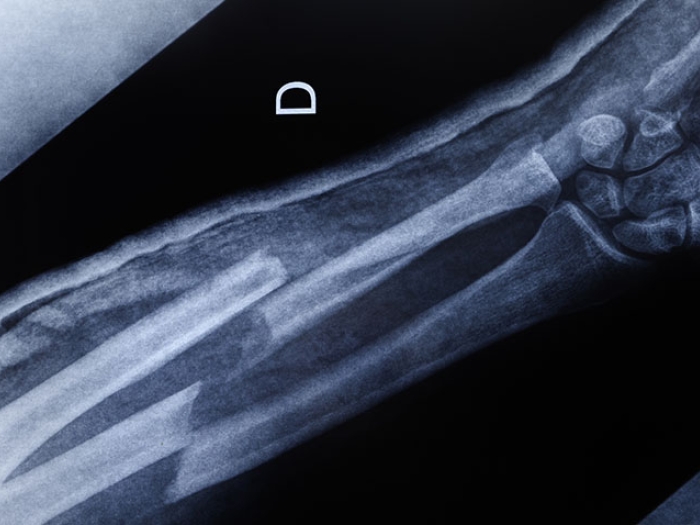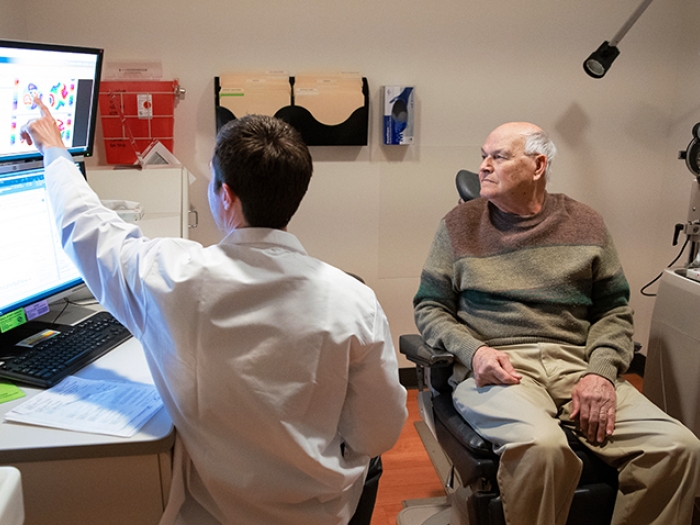Kirkendoll was a previous Health Lab contributor and member of the public relations team.

News Release
By learning how zebrafish regenerate their eye muscles, researchers could help figure out how to help humans do the same.

Health Lab
Kidney transplant connects police officers through the gift of life.

Health Lab
Organ donation saves three lives in one family, after brother, sister and their mother each receive kidney transplants.

Health Lab
Eye doctors reduce number of prescription opioids after cornea surgery with no negative impact on pain management.
News Release
Join one of the largest single-day blood drives on the University of Michigan campus and register as an organ and tissue donor during Be a Hero at the Big House, 8 a.m.-5 p.m. Nov. 10, 2019

Health Lab
A Michigan Medicine Kellogg Eye Center ophthalmology course provides hands-on learning to help prepare medical students transitioning into residency.

Health Lab
Michigan Medicine surgeons have designed a new drug delivery technology which could help with bone regeneration.

Health Lab
FDA links rare cancer to textured breast implants and urges women to monitor themselves for possible symptoms.

Health Lab
Firework Hits Child in the Face, Mother Urges Caution

Health Lab
Metro Detroit TV Weatherman Dave Rexroth stays active, independent despite fireworks accident that left him with single vision.

Health Lab
Success of phase 3 trial evaluating teprotumumab for treatment of active thyroid eye disease (TED) brings drug closer to FDA approval.

Health Lab
Large Kellogg Eye Center study shows cases of herpes zoster ophthalmicus tripled in 12 year time span, highest among older adults

Health Lab
A Kellogg Eye Center study finds great promise in corneal transplants for patients who suffer shingles and develop subsequent vision-limiting corneal scarring.

Health Lab
Acanthamoeba, although rare, poses a significant risk to vision
News Release
Chronic obstructive pulmonary disease (COPD), an inflammatory disease of the small airways in the lungs, affects 16 million Americans and is the fourth leading cause of death in the United States, according to the National Heart Lung and Blood Institute (NHLBI). Identifying small airway disease in its earliest stages, when it is most treatable, could potentially lead to new drug therapies for those with COPD, researchers say.